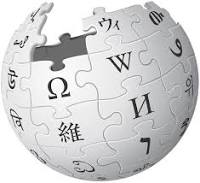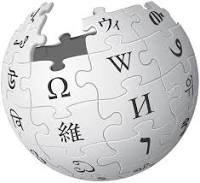

Getting a Wikipedia entry is fraught with dangers. Inlinks has chosen not to list a specific strategy. Instead, we are bringing in tips and ideas from well-known practitioners in online retrieval, including inLinks users.
One of the challenges is that Wikipedia is controlled ultimately by a very small and not necessarily unbiased group of people. According to Ricardo Baeza-Yates (24 minutes into this lecture), 0.04% of the users of Wikipedia create 50% of all posts. That is considerably more extreme than Facebook or Twitter, also cited in the same lecture.
0.04% is less than 1 in 2,000 users.
I have previously discussed the bias that results from this problem over on my personal blog.
What the Experts Say
I approached Wikipedia editor, Search Engine Journal author and Webmasterradio online radio personality, Jim Hedger to get some thoughts.
“The crux to Wikipedia is to go very slowly and build personal authority. It’s a community driven legacy project with a high sense of purpose and mission. It has a hierarchy of authority but most decisions are made by regular editors who subscribe to a common set of guidelines.
Topical areas people want to edit in become little sub-tribes of networked contacts who have worked the subject material for years and newly interested people. Such communities are built on trust in long term dedication to accuracy and skill. Pretty much everything else revolves around some variation on the rules of educated and civil society.
Cite everything you can. Wikipedia is all about providing new paths for users to follow when examining and evaluating information if there’s a credible source. (There is strict criteria for what can be considered “credible”.)
Don’t try to impose your ideas on other people without first considering their backgrounds and experiences. Wikipedia isn’t social media. There is a definable right and a wrong and a great deal of proof is required to prove oneself right, even on things that are obvious to every observer on Earth.
Forgo: political bias or commercial goals; ‘I mean…’, ‘like’, ‘ok’, ‘so like’, ‘of course’, ‘but’, ‘you know…’. Polite, educated, civil society and all that. We have incredibly complex polite, educated, civil societies already made up of people who have known each other since they went to school together. We all know how things are done amongst people who have lived to learn to trust each other eh? It’s the same, ’tis the same in the whole wide world. Keep your political and / or commercial ideas at an arm’s length from your profile until you know its OK to introduce them in subtle ways.
Citations are extremely effective ways of being subtle but, of course, they’re the among most examined elements of newer editors’ work. Images are another way of introducing subversive or commercial content without being completely obvious.
Almost all Wikipedia editors, meta-editors, and admins can read (almost) but fewer will be able to visually contextualize an image unless they are extremely familiar with a topic. Know when to pick your battles. Unless you’re behind the scenes or sit on an American Parents Teachers Association, it’s hard to describe the levels of petty bullshit that fly around in discussions about ideas or controversial edits. You have a finite amount of social capital and community respect. Know how to invest it so it grows rather than spend it so it declines .”
Jim Hedger
Arnout Hellemans, a Dutch search specialist, agrees that you should take small steps and not try to dive in. He also recommends focussing on Wikimedia’s prime data repository, WikiData. Paraphrasing his telephone conversation:
I really became interested in Wikipedia after reading a SEMRush article [by Jacques Bouchard] on how to use Wikidata. The trick is to move slowly and connect dots. Let me start with the example of a hotel, such as the Waldorf in New York. Look up other hotels that have entries on Wikidata and look at the “identifiers” section. [This represents other URls that represent the same physical entity.] Now make sure that you add similar identifiers to your hotel.
Wikidata is the ‘Linking pin’ between all of the trusted topics of your entity.
Take your time and do not make multiple edits on the same entity. Edit and add identifiers to many other areas and add to the collective repository and not just ones you are directly interested in.
For SMBs and people it is much harder to use Wikidata.
Arnout Hellemans
Information Retrieval expert, Dawn Anderson takes a much more direct approach:
Do something notable I would say. Getting into Wikipedia is not a given for anybody.
Dawn Anderson
This is great advice but demonstrates how challenging it is to warrant comment in what is an encyclopedia. There is often a feeling of anguish at the personal level that you or your favourite entity does not warrant inclusion in Wikipedia, but would you have expected such an entry in previous versions of encyclopedias? Such and Encarta or the Encyclopedia Britannica? If not, then perhaps this is a pause for thought.
Jason Barnard concurs, but adds a cautionary note:
When thinking about a place in the Knowledge Graph, I would say ‘find your springboard’. As Dawn says, what makes you notable (and worthy)? Wikipedia’s rules are a great guide, but are no longer the ‘law’. The opportunities have gotten MUCH wider in the last year. And will get wider still in the years to come.
If you create an entry that is not worthy of a place, or overdo editing on pages you are closely associated with, you will get a warning, or possibly removed. The job to get a page relisted is very very difficult, and the work to remove a warning is very slow and delicate. Be warned !
Jason Barnard
Greg Niland of GoodROI suggests:
Using the Help a Reporter site can help to build up enough media mentions to support a case for inclusion.
Greg Niland
This looks at solving the problem from a side-on perspective and avoids trying to manipulate or edit Wikipedia directly. The theory is that if you can be cited as an authority in a reputable source, such as the Wall Street Journal or the New York Times, then this significantly increases the odds of a third party using your citation as an independent citation to back up a Wikipedia entry. Note that this strategy is not directly aiming at BEING an entity on Wikipedia, but instead develops LINKS from Wikipedia.
Avoiding editing your own entry
I asked “how should I suggest people deal with the thorny point that if you are connected to the entity/article, you are not supposed to edit the entity/article? This, to me, seems a little misguided as it means by definition, the editors are NOT experts in the content they are editing… but how should a would-be-notable address this?” I received this sage response from
I would suggest going to the “Talk” tab, start a thread there and just tell them that you realize you can’t edit it because you’re connected to it, but lay out the inaccuracies/corrections/additions and ask if someone would please make those changes.
Doc Sheldon
Other Resources:
- A very good article on getting listed on Wikipedia is offered here.
- Wikipedia also gives a guide itself here.
- This SEMRush article from 2015 is also cited above.
Can you make this guide better? Send suggestions via the blue chat icon. ==>
